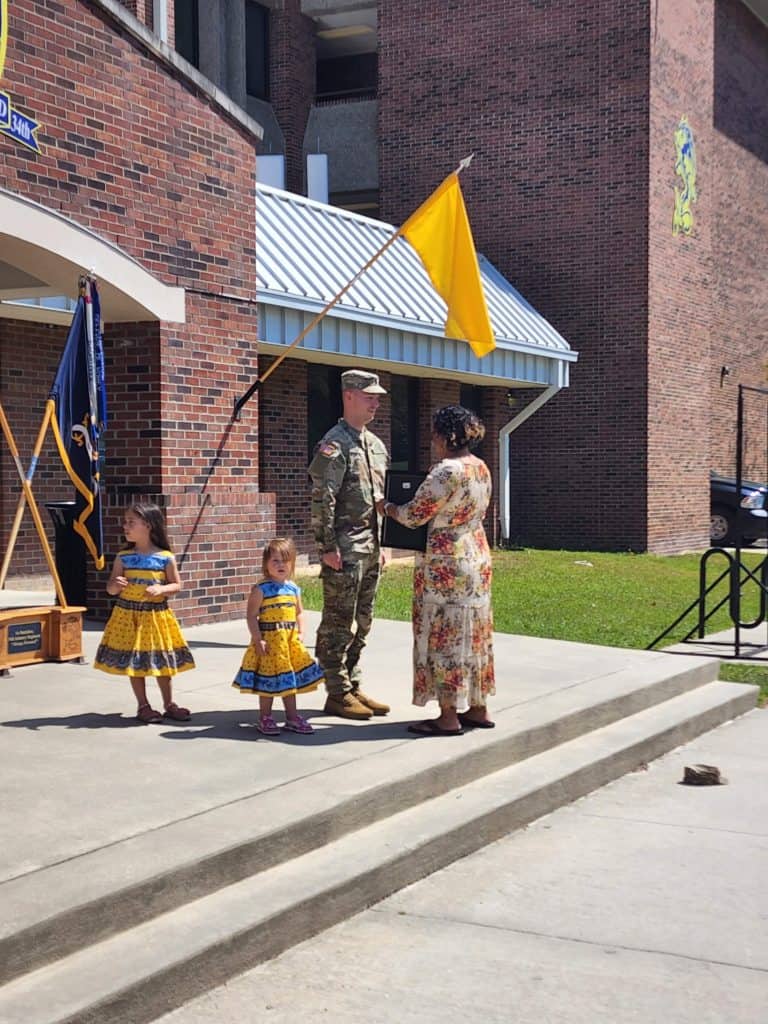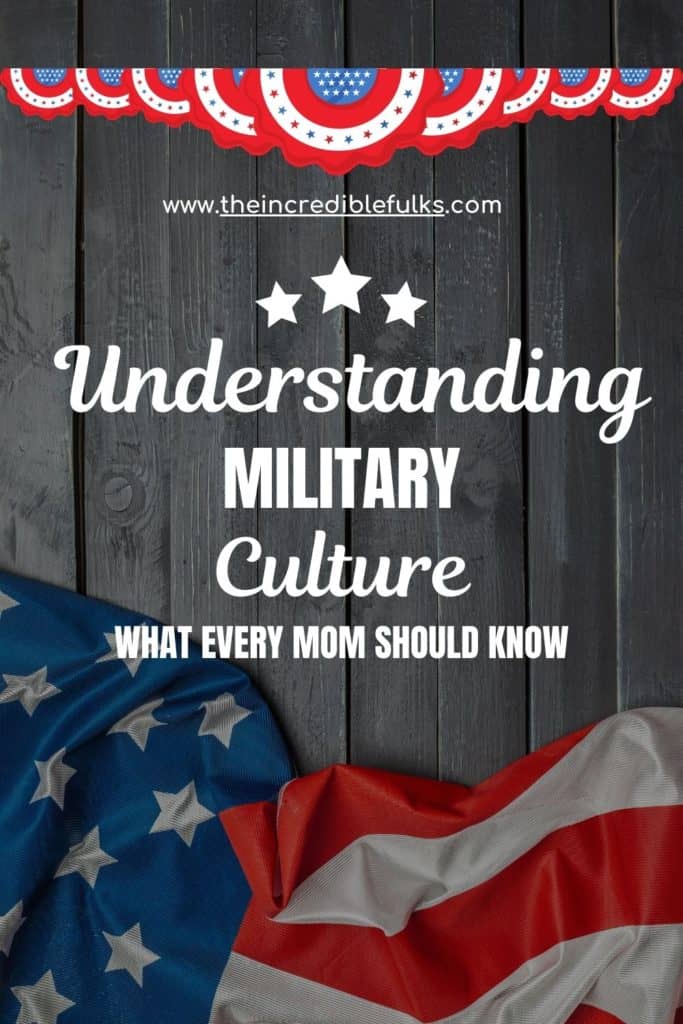Being a military mom comes with its unique set of challenges and rewards. Whether you are a seasoned military spouse or a new mom just starting this journey, understanding military culture is essential for navigating the lifestyle and fostering a sense of community and support. In this blog post, we'll introduce you to some key aspects of military culture, including terminology, customs, and traditions, to help you feel more connected and confident in your role as a military mom.
As an
Military Terminology: Decoding the Language
The military has its own distinct language, filled with acronyms and jargon that may seem overwhelming at first. However, learning some of these terms can help you communicate more effectively and feel like an active part of the military community. Here are a few commonly used terms:
– PCS (Permanent Change of Station): This refers to the process of moving to a new duty station, often involving relocation to a different base or location.
– DEERS (Defense Enrollment Eligibility Reporting System): DEERS is the military's database that tracks service members' and their family members' eligibility for benefits.
– PX/BX (Post Exchange/Base Exchange): These are on-base stores where military members and their families can purchase goods at discounted prices.
– Commissary: Similar to a civilian grocery store, but located on military bases and offers subsidized prices to eligible personnel.
-PT/APFT (Physical Training/Army Physical Fitness Test: APFT is a performance test that indicates a Soldier's ability to perform physically and handle his or her own body weight. Soldiers train for this during PT in the morning with their fellow soldiers.
-IPPS-A (Integrated Personnel and Pay System–Army): This is a new system that tracks all the soldiers leave, passes, and awards.
Here is the military's site listing a whole bunch more acronyms and abbreviations!

Embracing Customs and Traditions
Understanding and appreciating military customs and traditions is essential for any parent looking to navigate the military culture effectively. These customs are not just formalities but are deeply rooted in the history and values of the military community. Here's a more detailed look at some key aspects:
Mastering Military Time
In the military, the 2400-hour clock is standard. This system, unlike the 12-hour format most are familiar with, runs from 0000 (midnight) to 2359 (one minute before the next midnight). This format is for precision and avoiding ambiguity in operations. As a homeschooling parent, integrating lessons on military time can be both educational and practical, helping your family align with your spouse's schedule and understand time-sensitive aspects of military life. You can make learning this format fun and interactive, perhaps by setting daily alarms in military time or scheduling activities using this format.
Flag Etiquette
The American flag holds a place of great honor and respect within the military. Understanding the proper protocols for handling and displaying the flag is very important. This includes knowing the correct way to fold the flag, the meaning behind each fold, and the appropriate times to fly the flag at half-mast. Bases often have specific times for raising and lowering the flag (known as “Reveille” and “Retreat”), and being present for these moments can be a profound experience. Including lessons on flag etiquette in your homeschool curriculum not only teaches respect for this national symbol but also instills a sense of patriotism and reverence for the sacrifices made by service members. Read my article Teaching Kids about Military Service and Sacrifice for more info on how to honor our service members.
Military Balls and Ceremonies
These formal events are significant in military life, offering a glimpse into the rich traditions and customs of the armed forces. Military balls are not just social gatherings but are steeped in protocol and tradition, including ceremonial toasts, guest speakers, and often a formal dinner. Participating in these events allows families to honor the commitment and sacrifices of service members. Preparing for a military ball can be an educational opportunity for homeschooling, discussing the history and purpose of these events, and the etiquette required, such as dress codes and social protocols.

Understanding Ranks and Insignia
Military ranks and insignia can seem complex, but they are fundamental to the structure and organization of the armed forces. Learning about different ranks and the associated insignia can help you and your children better understand the hierarchy and roles within the military. This knowledge is particularly useful in social settings on base, where recognizing ranks and addressing service members appropriately is a sign of respect.
Celebrating Military Holidays
Certain holidays hold special significance in the military, such as Memorial Day, Veterans Day, and the birthday of each military branch. These days are opportunities to honor those who serve and remember those who have given their lives. Participating in or even hosting events on these days can be a meaningful way to connect with the military community and educate your children about the importance of service and sacrifice.
Here is an old classic military 101 book for women!
Coping with Deployments
Deployments are a common part of military life, often bringing challenges and emotional upheaval, especially for families. As a military mom, finding ways to cope with the absence of a loved one is important for maintaining family strength and resilience. Here's an expanded look at strategies that can help you and your family during these times:
Enhanced Communication
Maintaining a strong connection with your deployed loved one is so important when possible. Utilize every available communication channel, such as video calls, emails, and letters. Encourage your children to share their daily experiences, drawings, or stories in these communications. Video calls can be especially important for maintaining a visual connection, but remember, the frequency and availability of these calls can vary depending on deployment conditions. In your homeschooling curriculum, include activities like writing letters or creating care packages, which can be a therapeutic process and help children feel closer to their deployed parent. Read my article 6 Ways To Nurture Trust in Your Marriage While Your Spouse is Overseas to learn how to keep your marriage strong during this time.
Joining and Leveraging Support Groups
Support groups, whether local or online, offer invaluable resources. They connect you with others who understand the unique challenges of military life. These groups can offer practical advice, emotional support, and sometimes, logistical help. Don't hesitate to share your experiences and seek advice from veteran military families who can offer a wealth of knowledge and understanding. Participating in these groups also provides a sense of community and belonging, which is essential during deployments.

Establishing Routines and Rituals
Consistency is key in navigating deployments. Establishing and maintaining routines provides a sense of normalcy and security, especially for children. This could include regular meal times, bedtime routines, or weekly activities like family game nights or movie nights. Rituals are just as important; for example, you might create a ritual of counting down days to your loved one's return, or marking significant milestones during the deployment. Including these rituals in your homeschooling routine can be a fun and educational way to keep track of time and make the deployment period more manageable.
Fostering Independence and Resilience
Deployments are an opportunity to develop independence and resilience, both for you and your children. Encourage your children to take on new responsibilities, which can boost their self-confidence and help them feel more connected to the deployed parent. For example, they might help more with household chores, assist in planning meals, or take on a new educational project. This is also a time for you to explore your own strengths and hobbies, which can be both empowering and a distraction from the challenges of deployment.
Creating a Supportive Learning Environment
As a homeschooling parent, you have the unique ability to tailor your children's learning environment to address the emotional and educational needs that arise during deployments. This might include focusing on topics that interest your children, providing extra support in areas they find challenging, or even taking breaks when needed. Remember, flexibility is a strength in homeschooling, especially during these times.
If you are not currently homeschooling but are interested, check out my How to Homeschool Series! You can head to Part 1: Introduction here.
Seeking Professional Support When Needed
Don't hesitate to seek professional support if you or your children are struggling. Counselors who specialize in military families can provide valuable guidance and coping strategies. Schools and military bases often have resources and professionals who understand the specific challenges faced by military families.
Building a Support Network
Developing a robust support network is important for military moms, as it provides emotional backing, practical assistance, and a sense of community. Here's an expanded guide on how to build and make the most of this network:
Active Participation in Family Readiness Group (FRG) Meetings
FRGs are a cornerstone of support for military families. They offer a wealth of information, resources, and a platform for social interaction. Actively participating in these meetings allows you to stay informed about various aspects of military life, including benefits, resources, and upcoming events. Engaging with your spouse’s unit FRG point of contact (POC) is a great start. Many FRGs also have Facebook pages or other social media platforms, offering an easy way to stay connected and updated. Use these meetings not only as a source of information but also as an opportunity to form meaningful connections with other families who understand the unique challenges you face.
Reaching Out to Other Military Moms
Building personal connections with other military moms can be immensely supportive. These relationships provide a space for sharing experiences, advice, and emotional support. You can connect with other moms in your local community or through online platforms. Consider forming or joining informal groups for playdates, coffee meetups, or even book clubs. Online platforms, especially those dedicated to military families, can be a rich resource for advice and shared experiences. You can also participate in forums or social media groups where military moms gather.
Engaging in Community Events
Military bases often host a variety of community events and activities. Participating in these events can help you meet other families and build a sense of belonging within the community. These events range from holiday celebrations to family fun days, offering opportunities for both adults and children to connect and engage with others.
Volunteering and Leading
Consider taking an active role in your community by volunteering or even leading initiatives within the FRG or other military support groups. This involvement can be incredibly fulfilling and allows you to contribute positively to the community, while also expanding your network.
Collaborating with Local Schools and Educational Groups
As a homeschooling parent, you have the opportunity to connect with local schools and educational groups. These connections can provide additional educational resources, extracurricular activities, and social opportunities for your children. Collaborating with these groups can also help you network with other parents, both military and civilian, who share your educational interests.
Utilizing Base Resources
Military bases offer various resources, from counseling services to recreational facilities. Familiarizing yourself with these resources can provide additional support and opportunities for social interaction. Many bases also have newcomer orientations, which can be a great way to get to know other recently arrived families.
Building a support network is a dynamic and ongoing process. It involves actively seeking out connections and opportunities for engagement. By doing so, you create a supportive environment for yourself and your family, helping to navigate the complexities and joys of military life.
Here is a great book to give you encouragement and support.
Conclusion
Understanding military culture is a journey that evolves over time, and as a military mom, taking the initiative to learn about customs, traditions, and terminology can make a world of difference in your experience. Embracing the military lifestyle and fostering a sense of community and understanding will not only benefit you but also strengthen your family bonds and enrich your connection to the broader military family. Remember that you are not alone on this journey, and there are countless resources and fellow military moms ready to support and stand beside you every step of the way.
I would love to know how I can pray for you and your family. Please feel free to email me!
Need a gift idea for a servicemember? Check out my gift guide for the military here!







